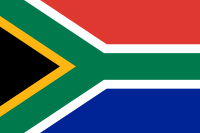 The South African government has introduced a draft Cybercrimes & Cybersecurity Bill for public comment. The Bill states that anyone who “sells, offers for download, distributes, or otherwise makes available” copyrighted works “by means of a computer network or an electronic communications network” will be guilty of an offense. Penalties include fines or up to three years imprisonment.
The South African government has introduced a draft Cybercrimes & Cybersecurity Bill for public comment. The Bill states that anyone who “sells, offers for download, distributes, or otherwise makes available” copyrighted works “by means of a computer network or an electronic communications network” will be guilty of an offense. Penalties include fines or up to three years imprisonment.
Comments are due by November 30, and can be electronically submitted to cybercrimesbill@justice.gov.za.
For more info –
- FULL TEXT: Cybercrimes and Cybersecurity Bill: Draft for Public Comment.
- The government’s discussion paper.
- Afro-Leo. Draft Cybercrimes and Cybersecurity Bill published for comment in RSA.
[This draft legislation for comment is in separate from, and in addition to South Africa’s draft Copyright Amendment Bill, which has also been published for public comment. The Copyright Amendment Bill has been the subject of recent consultations between academics, civil society, and government officials, which were described in earlier Infojustice posts by Caroline Ncube and Sean Flynn.]
Below is an excerpt from the government’s discussion paper on the Cybercrimes and Cybersecurity Bill:
Infringement of copyright
The most common copyright violations include the exchange of copyright-protected songs, e-books, files and software in file-sharing systems. File-sharing systems are peer-to-peer-based network services that enable users to share files, often with millions of other users. After installing file-sharing software, users can select files to share and use software to search for other files made available by others for download from hundreds of sources. Before file-sharing systems were developed, people copied records and tapes and exchanged them, but file-sharing systems permit the exchange of copies by many more users. Peer-to-peer technology plays a vital role in the Internet. File-sharing systems can be used to exchange any kind of computer data, including music, movies and software. Historically, file-sharing systems have been used mainly to exchange music, but the exchange of videos and e-books is becoming more and more important. The technology used for file-sharing services is highly sophisticated and enables the exchange of large files in short periods of time. First-generation file-sharing systems depended on a central server, enabling law enforcement agencies to act against illegal file-sharing. However, the second-generation file-sharing systems are no longer based on a central server providing a list of files available between users. The decentralised concept of second generation file-sharing networks makes it more difficult to prevent them from operating. More recent versions of file-sharing systems enable forms of anonymous communication and make investigations extremely difficult and time consuming. Research has identified millions of file-sharing users and billions of downloaded files. Copies of movies have appeared in file-sharing systems before they are released officially in cinemas at the cost of copyright-holders. The recent development of anonymous file-sharing systems will make the work of copyright holders more difficult, as well as law enforcement agencies. Although various technologies exist to prevent the copying of the contents of CDs and DVDs, software and hardware exist which can override the Digital Rights Management protection. High quality scanners can scan in excess of 30 pages per minute and this allows the scanned product to be saved as a digital file which allows copies of books to be made available. The Copyright Act, 1978 (Act 98 of 1978), regulates copyright in material. Section 23 of the Act determines when when copyright is infringed and sections 24 and 25 deal with the remedies for an infringement of copyright. Section 27 of the Act provide for penalties for the infringement of copyright. Clause 20 of the Bill aims to supplement the Copyright Act, 1978, by criminalising the infringement of copyright through the use of the Internet and more specifically peer-to-peer file-sharing. Clause 20(1) of the Bill provides that any person who intentionally and unlawfully, at a time when copyright exists in any work, without the authority of the owner of the copyright, by means of a computer network or an electronic communications network sells, offers for download, distributes or otherwise makes available, any work, which the person knows is subject to copyright and that his or her actions will prejudicially affect the owner of the copyright, is guilty of an offence. Clause 20(3) of the Bill defines “work” to mean any literary work, musical work, artistic work, cinematographic film, sound recording, broadcast, programme-carrying signal, published edition or computer program, which is eligible for copyright in terms of section 2 of the Copyrights Act, 1978, or similar legislation of any State designated by the Minister by notice in the Gazette.




